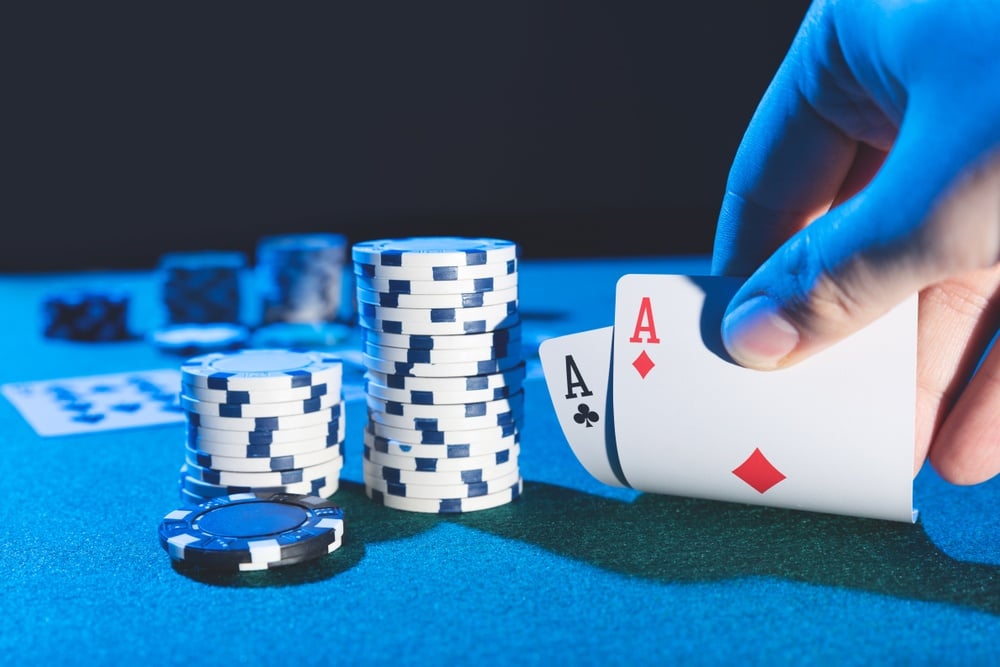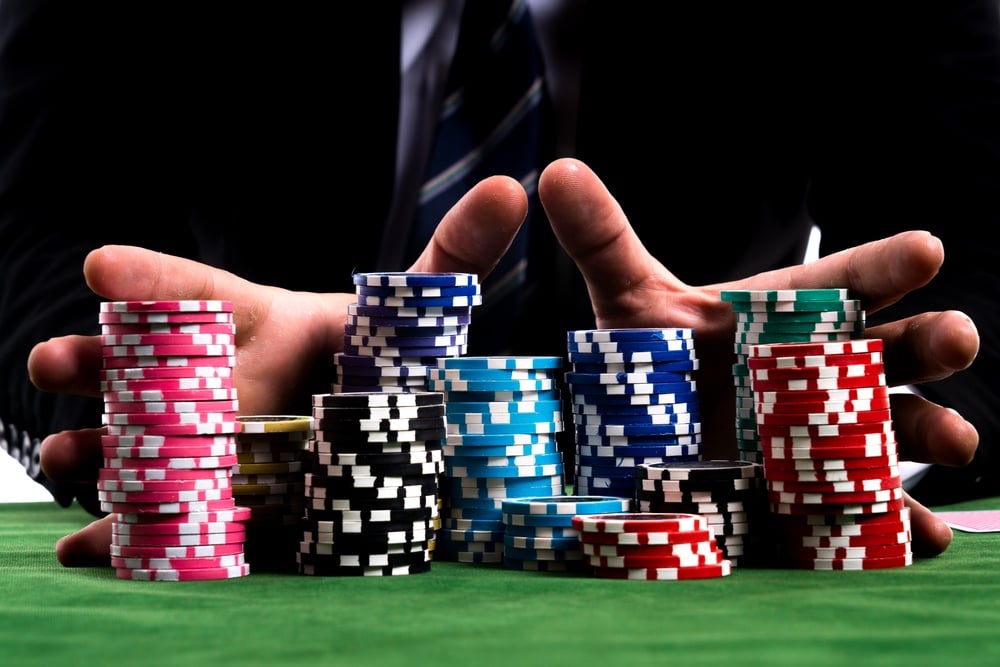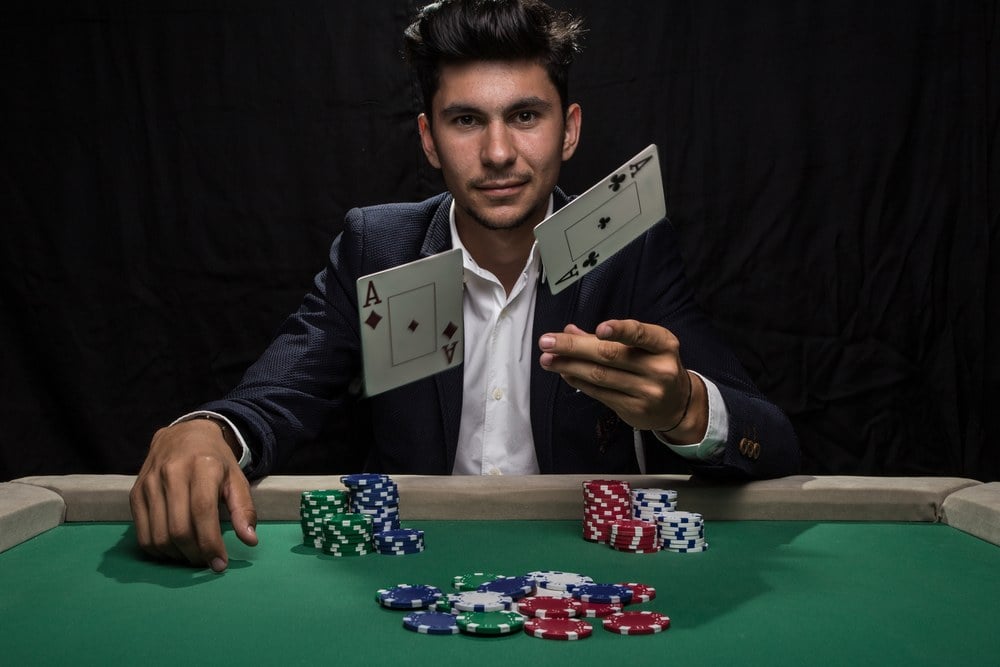Unlocking Mental Toughness: Sports Psychology Secrets for Poker Success

Overview: Elevate Your Poker Game with Mental Resilience
Professional poker is as much a mental contest as it is about skillful play or strategy. Embracing concepts from sports psychology can give poker players a winning edge by teaching them how to maintain focus, handle adversity, and strengthen mental endurance-particularly when the stakes and emotions run high.
This article explores proven techniques that help build psychological strength at the felt, including:
- Applying sports psychology tactics to poker for mental conditioning
- Strategies to boost composure and focus when faced with challenges
- Techniques like visualization, self-talk, and routine-based preparation for performance
- Approaches to manage stress and avoid emotional missteps during risky hands
- Tips for continual adaptation and self-improvement for long-term poker mastery
Despite its impact, mental toughness is often ignored by players who devote hours to technical training but neglect psychological growth. Harnessing these mental principles-from managing tilt to fostering lasting confidence-can distinguish you as a formidable opponent and sharpen your overall results.

Image Credit: Proxima Studio/Shutterstock
Learning Emotional Control: The First Pillar of Poker Success
Letting emotions dictate your decisions is one of the quickest ways to undermine your potential in both sports and poker. Stress, irritation after a bad beat, or the thrill of a winning streak can cloud your thinking and disrupt your strategy.
Elite athletes put in considerable effort to manage their emotional responses and remain level-headed-even in the most intense situations. Their secret? A toolkit of techniques that poker players can also adopt.
Adopting Athlete-Approved Emotional Regulation in Poker
Legendary athletes faced with high-stakes moments use specific habits to remain focused. These include:
- Controlled breathing to calm nerves before critical actions
- Positive self-talk to fend off negativity and reinforce preparation
- Consistent pre-performance routines that trigger the right mental state before action
Poker players experience emotional highs and lows constantly. Borrowing these athletic strategies minimizes the risk of tilt and ensures you continue to make rational decisions, hand after hand.
Essential Tools for Emotional Balance at the Table
Try integrating these expert-approved approaches into your own poker sessions:
Controlled Breathing: The 6-2-7 Cycle
Whenever emotions begin to rise, utilize this simple breathing exercise:
- Inhale slowly through the nose for 6 seconds
- Pause and hold your breath for 2 seconds
- Exhale gently through the mouth for 7 seconds
This quick reset slows your heart rate and helps restore clarity under pressure.
Anticipate Triggers and Use If-Then Planning
Identify scenarios that typically lead you to frustration or impatience. Then, pre-plan your response. For example:
- If a bad beat frustrates you, then take a deep breath, accept variance, and refocus on playing optimally.
- If you’re folding repeatedly and getting restless, then shift your attention to studying opponents’ tendencies for later use.

Image Credit: SOK Studio/Shutterstock
Practice Emotional Detachment
Make it a habit to evaluate hands based on decision quality-not the outcome. Key strategies include:
- Self-reflection: “Did I make the optimal play?” If yes, don’t dwell on the result.
- Track and review your decisions, focusing on your process over winnings or losses.
- Try “advice at a distance”: Imagine giving impartial advice to a friend facing your situation, then apply it to yourself.
By consistently applying these steps, you’ll train yourself to remain poised, even as the game intensifies.
Preparing Your Mind: Constructing Your Personal Poker Pre-Game Routine
Just as athletes warm up before competition, successful poker players benefit from a pre-session ritual that helps sharpen focus, eliminate distractions, and prepare for mental challenges.
Drawing inspiration from elite competitors-who visualize performance and repeat familiar routines-you can develop a similar process for poker to ensure peak readiness.
Designing Your Custom Mental Warm-Up for Poker
Implement this three-step mental routine prior to each session to cultivate a performance mindset:
Review Tactical Concepts and Hands (5-10 Minutes)
Before play, revisit notes on key hand situations or previous errors. Reflect on past leaks and focus on improvement areas-such as post-flop play, betting patterns, or avoiding common pitfalls.

Image Credit: SynthEx/Shutterstock
Perform a Visualization Exercise (3-5 Minutes)
Sit quietly and picture yourself acting confidently and skillfully at the table. Imagine responding calmly to adversity and visualizing your best plays. Reinforce your mental state with affirmations like:
“I am prepared. I trust my process and play with conviction.”
Set a Purposeful Intention (1 Minute)
Define a session goal focused on the process, not the outcome. For instance:
- “I will focus and remain present for every hand.”
- “I will ensure my decisions are not swayed by emotion.”
Anchoring your approach with specific intentions keeps your mindset disciplined and resilient.
Enduring Variance: Building Resilience Against Poker Downswings
Variance means even perfectly played poker sessions can end in losses for days or longer. Without psychological resilience, downswings can spiral into frustration, self-doubt, and poor decision-making.
Skilled players borrow from top athletes who view adversity as an opportunity to improve rather than a threat to overcome.
Staying Strong During Rough Poker Stretches
Building mental toughness isn’t about ignoring disappointment-it’s about responding constructively.
Prioritize Decision Quality, Not Immediate Results
After each session, reflect on the quality of your choices:
- Did you consistently make positive expected value (+EV) decisions?
- Did you control your reactions and avoid emotional play?
- Did you actively adapt to the table dynamics?
If the answers are yes, consider it a job well done-regardless of short-term results.

Image Credit: pixs4u/Shutterstock
Analyze Sessions for Growth and Awareness
Like athletes reviewing game footage, regularly revisit your hands and overall play to:
- Celebrate well-played hands, even those that lost
- Identify areas needing improvement and set actionable goals
- Maintain a journal documenting progress, such as managing tilt or focusing consistently
Reframe Variance as a Neutral Force
Variance is simply a mathematical aspect of the game-not a measure of skill or worth. To reinforce this mindset:
- Imagine coaching a peer in your spot. Offer yourself the same perspective.
- Analyze hand histories with a long-term view.
- Remind yourself: Consistently making the right plays will yield results over time.
Cultivating Lasting Confidence with Process-Based Thinking
Confidence that relies solely on successes at the table is vulnerable during inevitable losing streaks. Instead, robust confidence is built on preparation, strategic process, and consistent adherence to your plan-hallmarks of world-class athletes.
Methods for Fostering Steady Poker Confidence
Solidify your belief in your skills-regardless of short-term variance-by making these practices part of your poker journey:
Maintain a Log to Track Improvement
Record your progress by noting:
- Time spent studying and working on your game
- Critical hands reviewed and lessons learned
- Psychological wins, such as staying calm after setbacks
Regularly seeing these achievements demonstrates real growth and keeps you positive.

Image Credit: bilciu/Shutterstock
Reinforce Smart Decision-Making
After each session, intentionally note correct decisions you made, even if luck wasn’t on your side. Reaffirm to yourself:
“I used available information to make the right play. That’s what counts.”
This shift in thinking steers you away from outcome obsession and towards consistent execution.
Utilize Affirmations Centered on Preparation and Focus
Replace hopes of good luck with process-driven affirmations, such as:
- “I am confident in my preparation.”
- “My focus and mindset make me a strong player, regardless of today’s results.”
These positive self-statements reinforce confidence rooted in your own efforts and development.
Developing the Champion’s Poker Mindset
Competitive poker rewards not only those with technical skill, but also those with robust mental discipline. The strategies drawn from sports psychology give every player-regardless of background-a blueprint for outperforming the competition through psychological fortitude.
By mastering emotion regulation, crafting a reliable pre-game routine, cultivating resilience during downswings, and anchoring your confidence in well-honed processes, you’ll perform more consistently and with greater composure. Remember, true mental toughness is not about suppressing feelings or reaching perfection-it’s about handling adversity, responding intelligently to setbacks, and persevering with clarity.
Poker’s best aren’t only tacticians; they’re true mental athletes.
Image Credit: Pixel-Shot/Shutterstock













